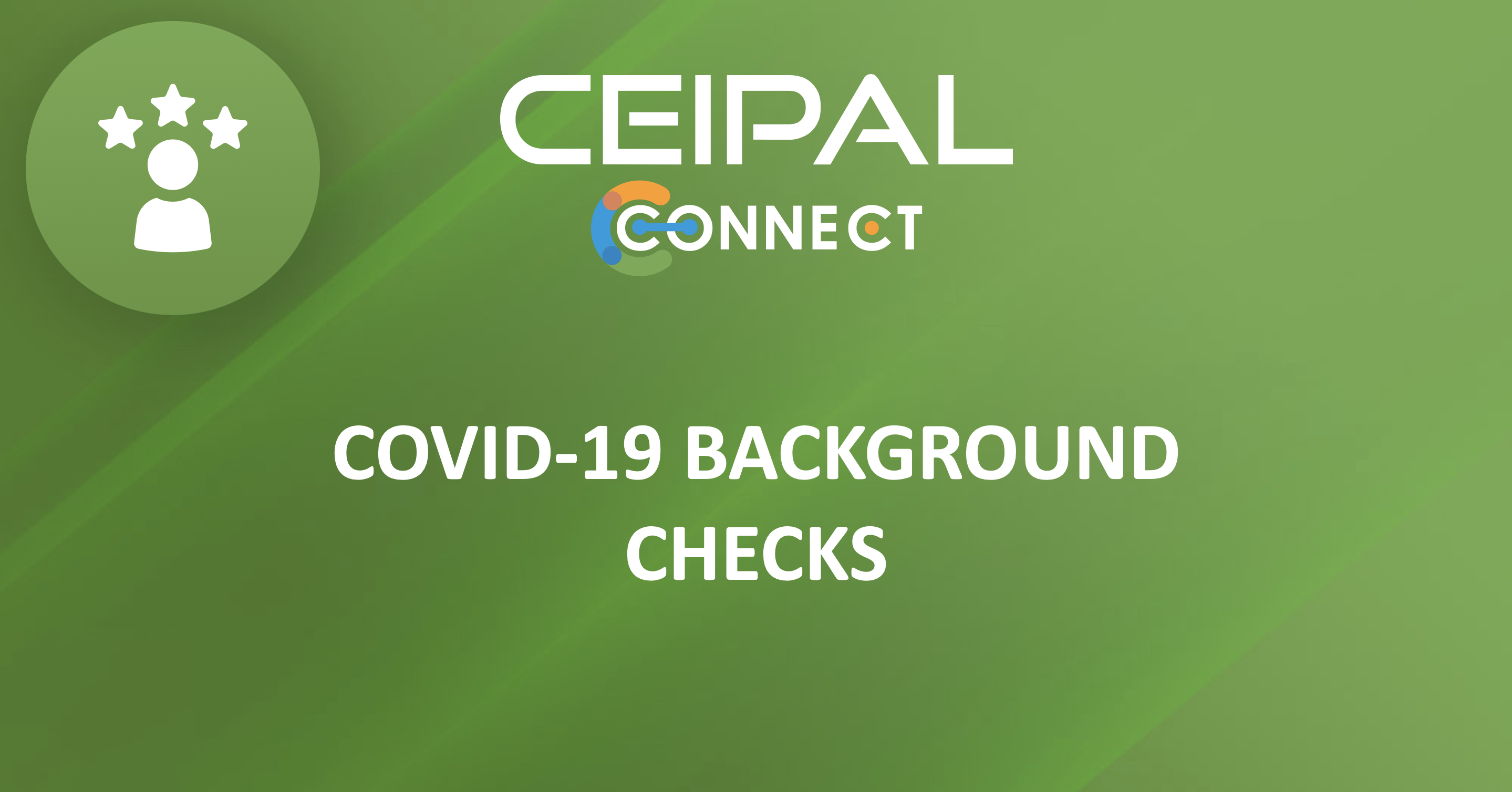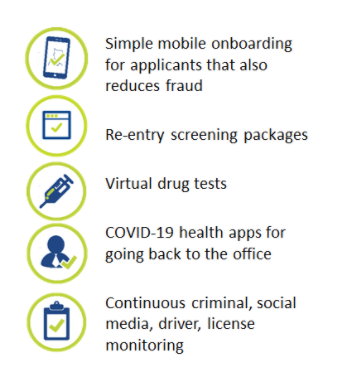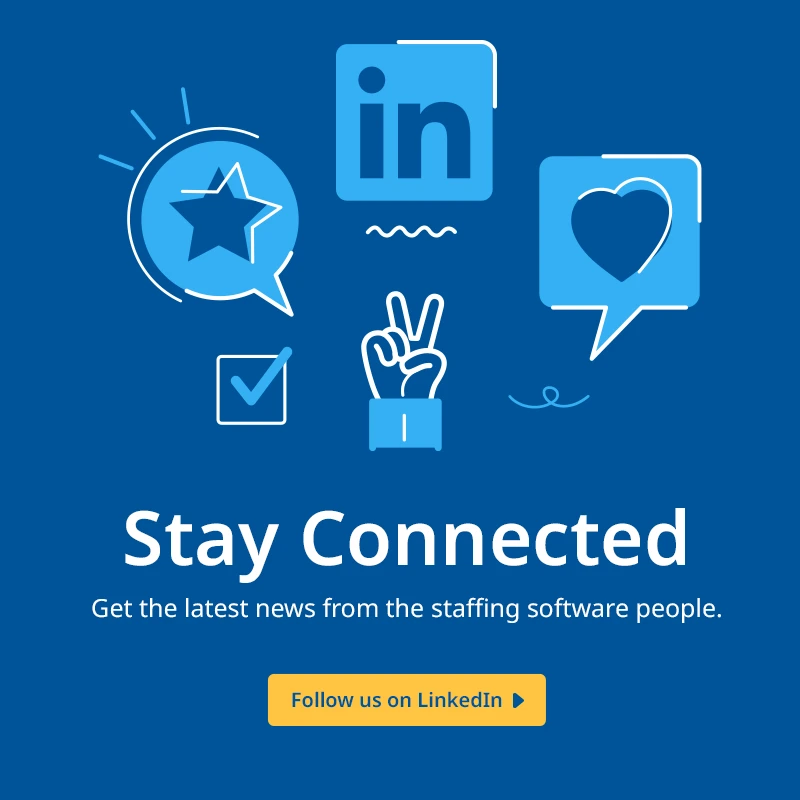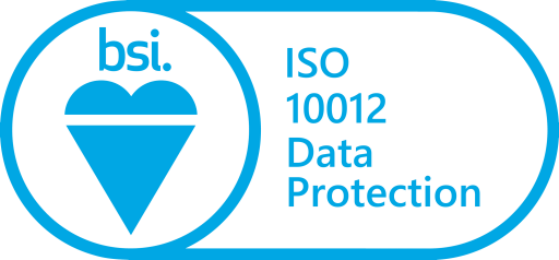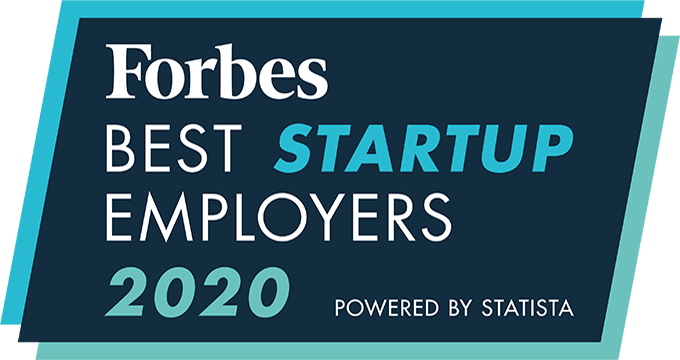Nothing is worse for a staffing firm than submitting a candidate who has not been thoroughly vetted, and then receiving a note from the client saying that candidate is not suitable for hire. In this session, InfoMart’s CEO and Chief Visionary Officer discuss COVID-19 background checks in our new normal.
Watch the Replay
Presenters: Marco Piovesan (CEO, InfoMart) and Tammy Cohen (Chief Visionary Officer, InfoMart)
Worldwide, COVID-19 has presented challenges to the staffing industry. Hiring has bottomed out; entire workplaces have pivoted to remote overnight; and concerns of safety, work-life balance, and job security are on the up.
And yet, one particular challenge stands out from the rest: background checks. From a remote workplace, how can staffing agencies thoroughly vet their candidates in a timely and cost-effective manner?
The Current State of COVID-19 Background Checks
In the early stages of the pandemic, background screening came to a screeching halt. The closure of courthouses, the inability to schedule drug tests, and more provided obstacles to hiring new employees. For industries that were hiring—such as healthcare and food delivery—this presented a seemingly insurmountable problem.
Flexibility turned out to be key for companies during COVID-19. Some clients specified that they would onboard hires with a temporary delay on their criminal background check, saying the demand was too great to slow down. Other employees took the loss, claiming they could not hire someone who may or may not have contracted COVID-19.
Now that we’ve adjusted to “the new normal,” HR managers and Trust & Safety officers are addressing these concerns by considering new methods and types of screening. This includes health screening, which has become critically important in our current public health crisis.
Effects on Data & Privacy Compliance
As the industry explores new screening methods, issues of data & privacy compliance consistently crop up. With new public health regulations published daily, and traditional compliance regulations, such as the FCRA, GDPR, and CPPA intact, restructuring the screening process was no easy task.
The companies that were most successful in the early stages of the pandemic were those that were as conservative as possible. Although it takes more time, making sure you follow all regulations and have applicants’ complete approval protects your company from potential harm down the road. Some tips to help you through this process are:
- Stay consistent. Make sure you’re informed about FCRA, GDPR, and CPPA policies.
- Ensure consent. Always ensure current disclosure and consent for the protection of employers and employees.
- Consider slight revisions. Consider updating policies and procedures for social media postings and continuous monitoring (consulting legal experts is advised).
The Long-Term Impact of COVID-19 Background Checks
Almost everyone suspects the “new normal” is here to stay. At the very least, everyone recognizes this period of uncertainty has changed the workplace forever. Some of the long-term impacts of the new normal on background screening include:
- Background screening will broaden to include the health of employees, brand reputation protection & fraud prevention
- AI, machine learning, and automation will assist in lowering the cost & turnaround times of screening, while increasing accuracy
- Candidates will increasingly want to control their data in response to privacy concerns
- The onboarding process will continue to transition to a remote, digital setting
Adjusted Solutions for the New Normal
The new normal is no easy place to work. Remote interviewing, hiring, and working, with a renewed emphasis on the health of employees, is a challenge for all HR professionals.
Luckily, however, our age of advanced technology has prepared us for this moment. Recruitment technology providers, such as InfoMart, have stepped up to provide comprehensive solutions to today’s challenges. Some examples are included below.
COVID-19 reentry solutions, such as InfoMart’s, offer comprehensive answers to COVID-19-specific questions. With InfoMart, employees download an app that sends daily reminders for symptom assessments. Every employee who passes their assessment is given a QR code, which grants them access to their office. In this way, InfoMart’s technology provides a continuous, thorough, and private way for employees to assess themselves and keep their co-workers safe.
To find out more about InfoMart and Ceipal, visit here.
